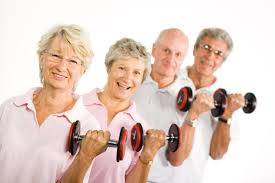Gerontology is the study of old age including the psychological, social, and biological processes of aging. Similar to gerontology, geriatrics is the medical subgroup of this field. Until recently, people had shorter lifespans, but with advancements in technology, medicine, and science, people are living longer because they are making healthier lifestyle choices.
Population pyramids illustrate the rapid growth of the aging population. The increase in the number of persons 55 years and older presents challenges and opportunities that need to be considered by aging individuals and their families. The purpose of this post is to increase the public’s awareness of these challenges and provide tips for aging well.
Psychological
Older adults experience a wide range of health challenges that affect their cognitive abilities and psychological well-being. Some of these include depression, dementia, and Alzheimer’s disease. Depression affects more than 6.5 million of the 35 million Americans aged 65 years or older. Depression often goes untreated in the elderly because it is mistaken for other forms of illness and disease.
Dementia is a general term for the decline in memory and other cognitive abilities that impact everyday life. Alzheimer’s disease is a form of dementia that affects memory, thinking, and behavior. Unfortunately, there is no cure for Alzheimer’s disease but there are medications available to slow its progression. Urinary tract infections (UTIs) cause conditions similar to dementia. As toxins build up in the body they cause the brain to become temporarily impaired until properly treated.
Biological
With people living longer, understanding the biology of the aging body is important. Such knowledge may lead to advancements in science and medicine that could help slow the aging process. In the process of aging, DNA can only replicate so many times and over time the body loses its ability to heal causing organ functions to decline. Older adults who experience a loss of mobility, sensory abilities, and of bone density (called osteoporosis), could take steps earlier in their lives to avoid these physical impairments.
Social Relations
Staying socially active is important because those who do have a better quality of life, feel happier, are more stress free, and have better positive well-being. Friends can help elders remain physically and psychologically active and can be a source of emotional support and assistance in times of need. They also help elders avoid feelings of isolation which could lead to feelings of loneliness, sadness, and depression. Maintaining consistent contact with children and grandchildren also lends to better psychological health and well-being. Today’s technological advances in communication can make connecting with friends and family via email, texting, instant messaging, and video chat much quicker than postal mail.
Tips for Aging Well:
- See your doctor regularly for medical check-ups!
- For women, get regular breast exams, bone density screening, pelvic exams, and colonoscopy.
- For men, get prostate exam and colonoscopy.
- Wear sunscreen of SPF 30 or greater to protect skin from the sun damage and to help prevent skin cancer (AAD, 2014).
- Stay physically active! Talk to your doctor about an exercise routine that works best for you.
- Exercise routines can alternate between aerobic and muscle-strengthening activities.
- The Centers for Disease Control and Prevention (CDC) provides suggestions for time limits on exercise routines.
- Develop and maintain a close group of friends.
- Eat healthy! Replace cooking oils with olive oil, drink a lot of water, avoid skipping meals, and eat an abundance of fruits, veggies, and foods high in antioxidants.
- Take multivitamins to reduce the chance of vitamin deficiencies.
- Be optimistic! Make an effort to find and appreciate the positives about life.
In conclusion, growing old is a challenge, but aging adults who practice healthy lifestyles can live healthier lives.

